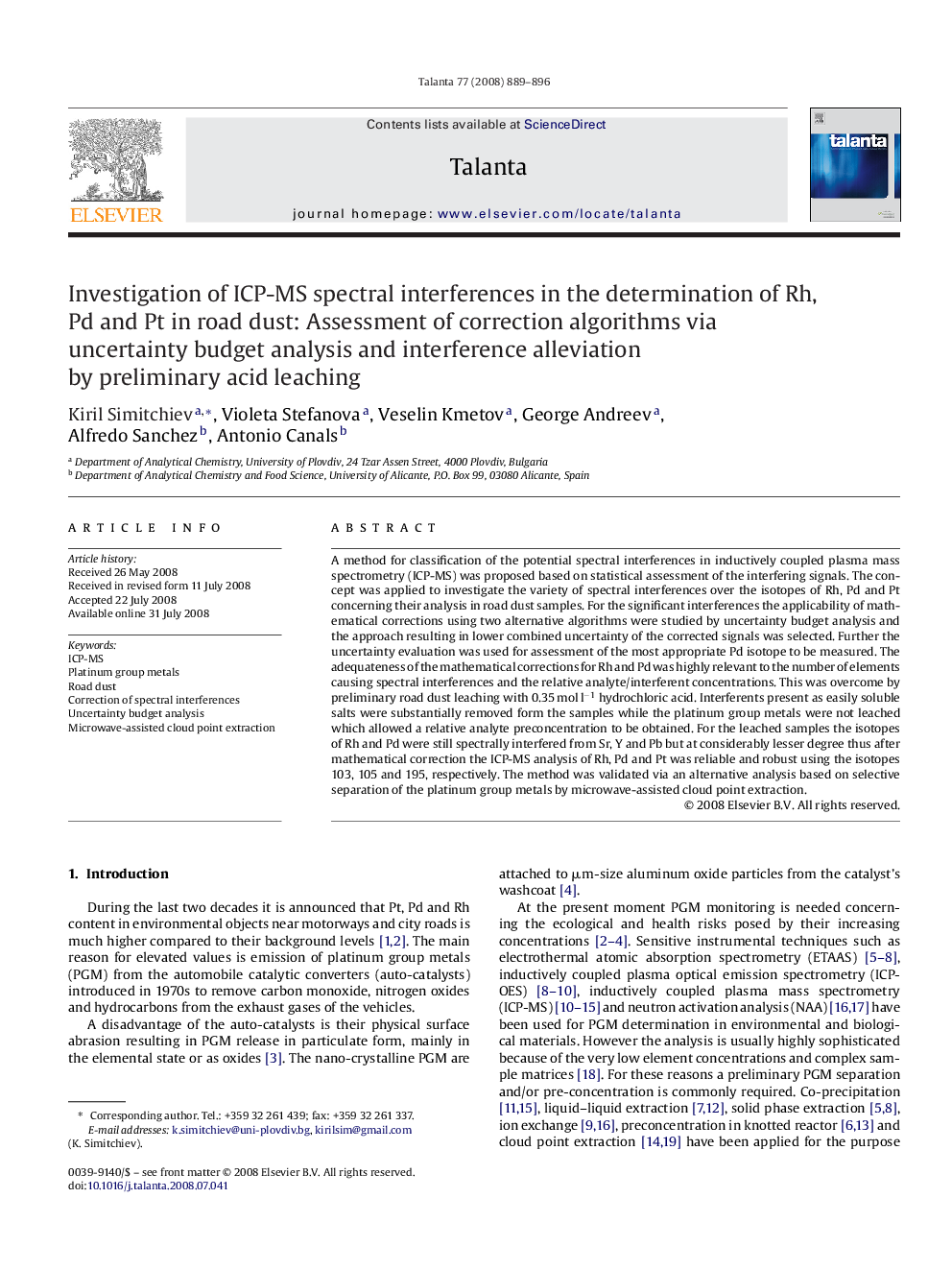| Article ID | Journal | Published Year | Pages | File Type |
|---|---|---|---|---|
| 1243153 | Talanta | 2008 | 8 Pages |
A method for classification of the potential spectral interferences in inductively coupled plasma mass spectrometry (ICP-MS) was proposed based on statistical assessment of the interfering signals. The concept was applied to investigate the variety of spectral interferences over the isotopes of Rh, Pd and Pt concerning their analysis in road dust samples. For the significant interferences the applicability of mathematical corrections using two alternative algorithms were studied by uncertainty budget analysis and the approach resulting in lower combined uncertainty of the corrected signals was selected. Further the uncertainty evaluation was used for assessment of the most appropriate Pd isotope to be measured. The adequateness of the mathematical corrections for Rh and Pd was highly relevant to the number of elements causing spectral interferences and the relative analyte/interferent concentrations. This was overcome by preliminary road dust leaching with 0.35 mol l−1 hydrochloric acid. Interferents present as easily soluble salts were substantially removed form the samples while the platinum group metals were not leached which allowed a relative analyte preconcentration to be obtained. For the leached samples the isotopes of Rh and Pd were still spectrally interfered from Sr, Y and Pb but at considerably lesser degree thus after mathematical correction the ICP-MS analysis of Rh, Pd and Pt was reliable and robust using the isotopes 103, 105 and 195, respectively. The method was validated via an alternative analysis based on selective separation of the platinum group metals by microwave-assisted cloud point extraction.
